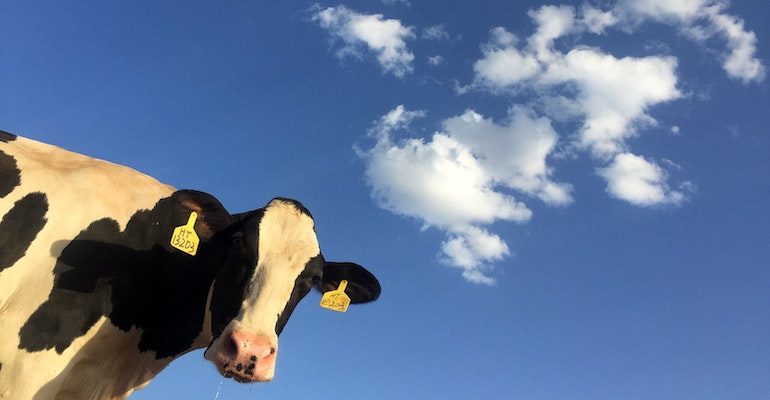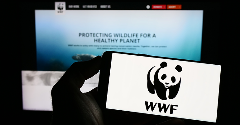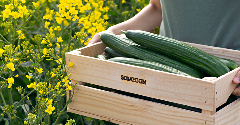News
Research shows livestock may not pollute as much as previously thought
4 Jun 2021A new study published in the Advancing Earth and Space Science journal found that the emissions intensity of global animal husbandry has actually decreased over the past two decades due to greater production efficiency.
Although the intensity of emissions has lessened, researchers found that due to anticipated increases in livestock production – driven by the global increase in per capita income and population – overall total methane emissions are expected to continue to increase in the future.

To help mitigate these projected total emissions increases, researchers pointed to continuing to lower emissions intensity through techniques like improving grazing management rather than turning to industrialized systems as an opportunity to drastically lower global methane emissions.
Such efforts are even more potent in reducing global emissions than efforts to reduce animal protein consumption. In fact, the study noted that improving livestock raising techniques has a four-fold larger mitigation potential than simply encouraging populations to eat more sustainably.
“Efforts on the demand-side to promote balanced, healthy, and environmentally sustainable diets in most countries can mitigate future livestock methane emissions, but will not be sufficient for livestock methane emission mitigation without parallel efforts to improve production efficiency and decrease the emission intensity per unit of protein produced,” lead researcher Jinfeng Chang said in a statement.
Today, livestock production represents a third of total methane emissions. From 1961 to 2018, these emissions levels increased by 51.4%, according to FAOSTAT. With such staggering figures, many consumers, companies and governments have been searching for alternatives to lower total global methane output. This study suggests that a more nuanced view needs to be taken with reduction efforts aimed at developing countries where demand for animal protein is rising alongside wages and standards of living. Specifically, researchers pointed to China, India, and South Africa as the countries with the highest mitigation potential.
To arrive at its conclusions, the study analyzed estimates of emission intensities per kilogram of protein production for each livestock category, including milk and meat from cattle, buffaloes, goats, and sheep; meat from pigs; and meat and eggs from poultry. Researchers then looked at emissions trends, referencing the Intergovernmental Panel on Climate Change’s (IPCC) revised guidelines from 2019 and compared them to projections using 2006 guidelines. The difference – which showed a decrease in emissions intensities – between this comparison informed the study’s projection of methane emissions from livestock to 2050.
“The continuation of the past decreases in emission intensity provides a large potential to mitigate livestock emissions, especially in a number of developing countries in Africa, Asia, and South America,” said Chang. However, researchers emphasized that those raising animals for human consumption should seek out sustainable ways to improve efficiency and that improvements to livestock production efficiency that are in line with the natural circumstances in their respective regions.
“An optimal strategy should always consider other relevant sustainability goals like biodiversity, water pollution through nutrient runoff, and the potential implications for livelihoods and resilience to climate change impacts,” Chang said.
Related news

Soy story: WWF scores UK supermarkets on sustainability efforts
12 Nov 2025
WWF has published its latest “Soy Scorecard”, ranking UK supermarkets’ efforts to combat deforestation and land conversion in their soy supply chains.
Read more
Standing Ovation and Bel scale up casein production from dairy co-products
11 Nov 2025
Foodtech company Standing Ovation has partnered with cheese specialist Bel Group to manufacture dairy serums for industrial-scale casein production via precision fermentation.
Read more
New UPF standard hoped to offer consumers ‘coherence and clarity’
10 Nov 2025
Ingredients companies are being urged to enter “a new era of partnership and innovation” following the launch of the industry’s first non-UPF verification scheme.
Read more
Whistleblowers accuse UK meat industry of promoting cheap, unsustainable supply
7 Nov 2025
An anonymous group of industry insiders has accused the UK’s biggest food companies of systematically driving down meat quality and welfare standards.
Read more
Bord Bia presents Irish dairy ingredient suppliers at Fi Europe
6 Nov 2025
Dairygold Co-operative Society, The Carbery Group, and Ornua Co-operative: Meet with sustainable producers of Irish dairy ingredients at Food ingredients Europe 2025, Hall 7.2 Stand M18.
Read more
AI attraction means foodtech startups must ‘prove’ rather than ‘promise’
4 Nov 2025
Reports suggest that artificial intelligence (AI) is sucking investment from foodtech and agritech, but investors say the picture is complicated.
Read more
Penguin and Club bars no longer classed as chocolate
30 Oct 2025
Penguin and Club bars can no longer be classified as chocolate after the pladis-owned McVitie’s brands turned to cheaper alternatives amid the ongoing cocoa crisis.
Read more
Could plant-based protection replace plastic packaging?
29 Oct 2025
Swedish foodtech company Saveggy has launched an additive-free plant-based protection for cucumbers, offering a waste-free packaging solution for fruit and vegetables.
Read more
Does promoting protein content push up plant-based sales?
27 Oct 2025
Promoting the protein content of meat-free products is a more effective sales strategy than adding carbon labels, a study of UK bakery chain Greggs suggests.
Read more
Amazon Grocery launch aims to balance quality with affordability
22 Oct 2025
Global e-commerce giant Amazon has introduced a new private-label food brand, combining existing Amazon Fresh and Happy Belly products with new everyday items.
Read more